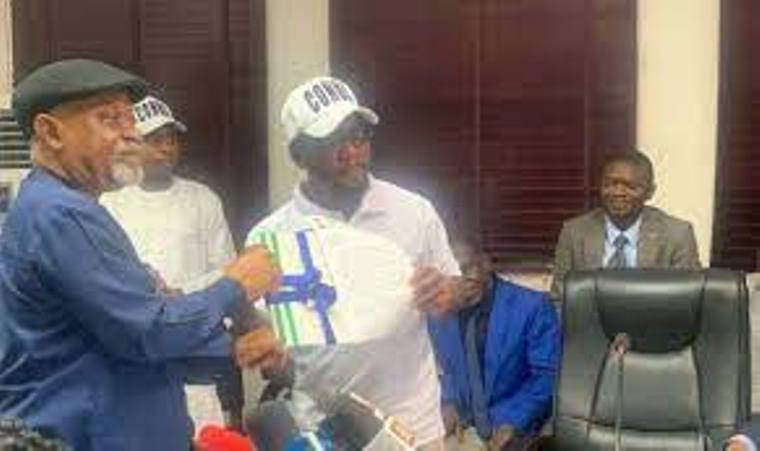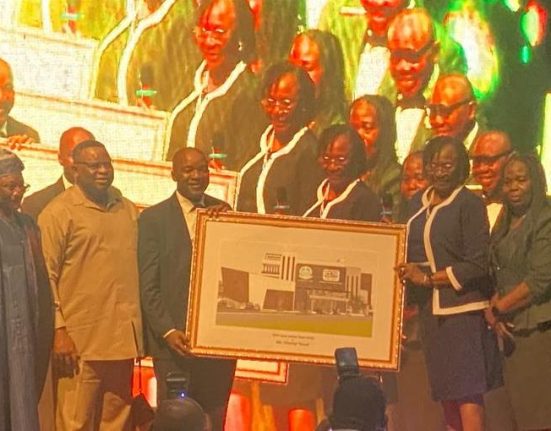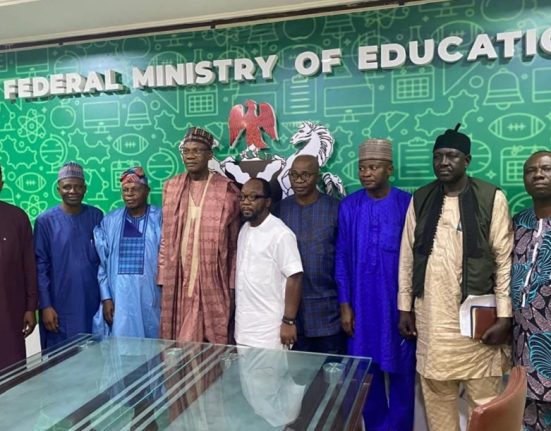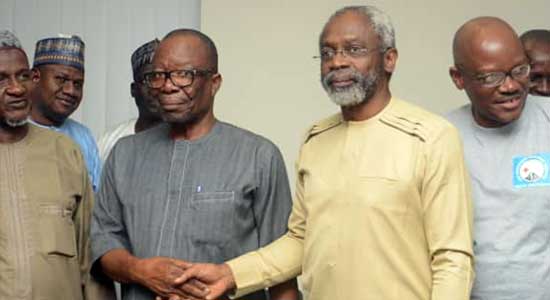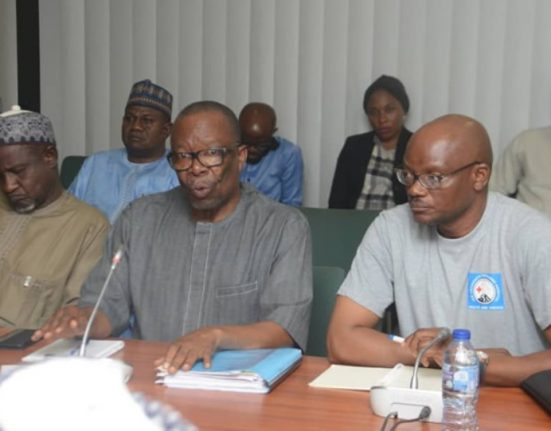By Our Correspondent in Abuja

The Federal Government has formally registered two new university-based unions – Congress of Nigerian University Academics (CONUA) and National Association of Medical and Dental Academics (NAMDA).
Minister of Labour and Employment, Senator Chris Ngige, announced this while presenting certificates of registration to the two new unions on Tuesday in Abuja.
Ngige said that the move would help liberalise the academic sub-sector and allow more freedom for university workers.
The NewsZenith reports that with the granting of registration to the two unions, Nigerian universities now have three academic unions, namely ASUU, CONUA and NAMDA.
The government said that with the registration granted the two unions, they were now entitled to all rights and privileges ascribed to unions and would be given access to those rights by the government and university authorities.
“In view of the above, I Senator Chris Nwabueze Ngige, in the exercise of the power conferred on me as the Minister of Labour & Employment, do hereby approve the registration of CONUA and NAMDA.
“The Federal Ministry of Labour and Employment in the discharge of her mandate in the management of employment relationships and the administration of trade unions to ensure a harmonious industrial relations system in the nation has decided to approve the registration of two more trade unions in the Nigerian university academic sub- sector.
“The university sub-sector is a major development plank of any nation’s socio-economic growth.” the NewsZenith quotes the minister as saying.
Ngige said NAMDA included those medical doctors doing pre-clinical teaching of basic medical courses and honorary consultants teaching clinical students in the universities.
He told the new unions, “In view of this registration, you are entitled to all rights and privileges accruable to the union of similar status which includes the right to receive check off dues of members. You can now go back to your institutions and open the doors of your classrooms to teach the students.”
While explaining the government decision, Ngige said that in the last eight months, the classrooms in the country’s public universities had been shut and students kept at home by the strike action embarked upon by ASUU.
He lamented that the ugly situation had persisted despite a series of engagements to resolve the trade dispute by the federal government through the Ministry of Education.
“All efforts at conciliation failed to result in the transmission of the trade dispute to the National Industrial Court of Nigeria (NICN) for adjudication in line with the statutory trade dispute resolution processes.
“At the NICN, an Interlocutory Injunction Order was obtained asking the Union to get back to work while the substantive suit is being heard; an order ASUU leadership and members refused to obey,” the minister alleged.
“Interestingly, a lot of university teachers in the public universities had indicated their willingness to get back to work while negotiations continue.”
While justifying the decision, Ngige narrated that the experience in some of the institutions was helpless. He noted that some medical doctors teaching in various medical schools/colleges of medicine had carried on with teaching in the universities of Maiduguri, Bauchi, and Sokoto, and had graduated new doctors in the midst of the ASUU strike.
He argued that some of those lecturers had since been applying to have their own academic associations registered as trade unions to organise their members because they did not share in the models, objectives, modus operandi, mission and vision of ASUU.
Ngige said there were differences among the key segments of the universities, especially those who did not believe in recurring strikes as the solution to every welfare problem, adding that some lecturers had also accused the ASUU executive of non-rendition of account of incomes and expenditure for years.
“The Ministry of Labour and Employment set up a committee to look into the merit of their application.
“The committee saw merit in the application and recommended approval for the registration of the Association by the Registrar of Trade Unions (RTU) in 2020.
“But for the advent of COVID-19 pandemic and the recurring ASUU Strike, this would have been done,” Ngige stated.
Responding while receiving the certificate, the National Coordinator of CONUA, Niyi Sumonu, assured the minister that they would work to ensure that the country was not traumatised again by the strike.
Sumonu said CONUA members were never on strike, adding that they would appreciate it if the federal government would prevail on the school authorities to reopen the institutions for normal academic activities.
Similarly, the President of NAMDA, Dase Lancy Oriue, said the registration gave medical and dental academics in the universities and other tertiary institutions, where the training of medical students and postgraduate doctors took place, a legal voice in the determination of the training requirements, management of the training system and the welfare of its members.
Oriue explained that medicine and dentistry were very sensitive professions, which required a well-programmed, uninterrupted, and hands-on training
Meanwhile, ASUU has described the newly registered unions as unimportant, saying it has no faction.
ASUU president, Prof. Emmanuel Osodeke, remarked that Ngige was only being desperate over what he alone knew.
Emphasising that Nigerians needed to ask the minister certain questions, Osodeke said the newly registered unions were just dissidents whose extravagant ambitions were being advanced by Ngige.
He accused the minister of sabotaging the efforts of the National Assembly to deal with the root cause of the strike.
“We don’t have factions in ASUU. The minister is desperate, but they are inconsequential. Our union is intact and we will continue.
“When the National Assembly is trying to intercede on an issue and the Ministry of Labour is jumping from court to the issue of salaries, registering other unions. I think Nigerians should ask him what is his interest.
“We don’t have factions. Call them. Go to any of our branches, we do not have factions. What there are, the new group at OAU are dissidents and he (Ngige) encouraged them..
“But we don’t have factions. If we have factions, can we be on strike for eight months?” Osadeke asked.

